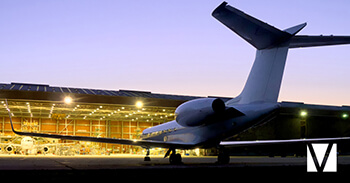
Aircraft ownership and travel can be an exciting hobby and business tool, but one that requires a substantial investment of time and resources. There are also risks involved, including legal responsibilities and liabilities. The protection of your investment and minimization of liability is something that you should discuss with your attorney.
Liability
The owners and operators of an aircraft are legally responsible for certain liabilities relating to the use of the aircraft. Ownership liabilities may be segregated into a limited liability entity such as a Corporation, Limited Partnership, or Limited Liability Company (LLC). If such an entity owns an aircraft, the owner of the entity is not generally personally liable for the entity’s liabilities or obligations.
However, the operator of an aircraft and pilot in command are primarily responsible for safely operating the aircraft. Therefore, even if an aircraft is owned by a limited liability entity, the operator and pilot in command are still liable for the safe operation of the aircraft.
Individuals owning an aircraft, whether directly or through an entity, should be sure to have sufficient liability insurance. They should ensure that all appropriate owners and operators are properly designated as “additional named insureds” under the insurance policy.
When ownership of an aircraft is shared, it is advisable to own the aircraft in a limited liability entity so that each owner may be insulated from liability arising from the operation of the aircraft by other owners. LLCs are often chosen for tax reasons and for flexibility. Here too, the LLC should be sure to have sufficient liability insurance.
Transferring Ownership
Clients often use a trust to transfer ownership to others as part of a comprehensive estate plan. The owner’s interest in an LLC owning an aircraft can be transferred to the owner’s trust. This ownership arrangement avoids probate court proceedings and can insulate the client from ownership-related liabilities (though as noted above, the operator/pilot is still typically liable for any damage caused by the improper operation of the aircraft).
Transferring aircraft to LLCs or trusts requires specialized documents and compliance with certain specific FAA regulations. It’s also important to complete a title search on an aircraft (and its engines) in connection with any purchase of an aircraft. Finally, a transfer of an aircraft may trigger state sales taxes, unless specific exemptions apply and are properly documented.
Varnum has attorneys with unique experience in the aircraft industry, as well as an outstanding team of estate planning and corporate attorneys, some of whom are aircraft owners and pilots themselves. Whether you are looking to minimize your liability, plan the transfer of your aircraft, or minimize taxes, our team of experts is here to help.

